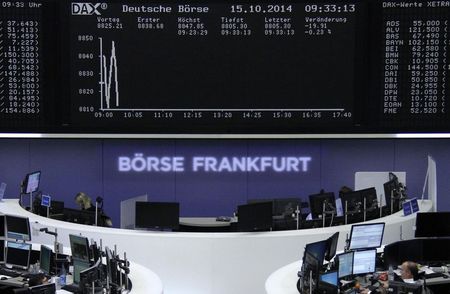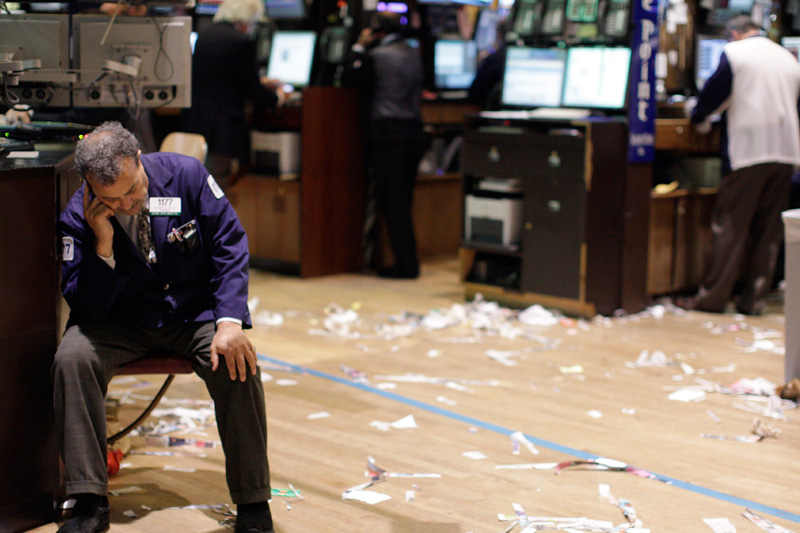By Lionel Laurent
LONDON (Reuters) - Persistent fears over the health of the global economic recovery kept bond yields and oil prices falling on Wednesday, with stocks also failing to break their recent losing streak.
Market volatility has surged in recent weeks as investors weigh the timing of expected interest rate increases, especially in the United States, against disappointing macroeconomic signals such as a worse-than-expected inflation reading from China.
Investors sought refuge from cooling economic activity in safe-haven government bonds across the euro zone, with German bund yields hitting a record low. Pressure is growing on the European Central Bank (ECB) to ease monetary policy further to spur growth in the region.
"With deflation worries still very much at the fore of the euro area and the pressure on the ECB to take further action in coming months, bunds will remain underpinned in the near term," said Nick Stamenkovic, bond strategist at RIA Capital Markets.
After a stable start to the European trading day, stocks were firmly in the red by 1117 GMT (0717 EDT), with the MSCI All-Country World index (MIWD00000PUS) down 0.2 percent and the pan-European FTSEurofirst (FTEU3) down 1 percent.
Britain's FTSE 100 (FTSE) benchmark stock index was also down 1 percent, dragged lower by a 26 percent fall in the share price of drug company Shire (L:SHP) after U.S. rival and suitor AbbVie (N:ABBV) warned it could reconsider plans to buy Shire.
Worries over the economic recovery also kept commodities under pressure: Brent crude futures
"The sharp decline in the price of crude oil is serving to increase downside risks to inflation in the near-term," said Lee Hardman, currency analyst at Bank of Tokyo-Mitsubishi UFJ.
The oil price fall also affected currency markets, where the U.S. dollar hit a five-year high against the Canadian dollar and held firm near a 11-month peak against sterling with investors resuming bullish bets after a recent sell-off and staying away from currencies grappling with slowing inflation.
"Clearly the correlation between oil and commodity prices on the Canadian dollar is playing out. The more oil prices fall, the more dollar/CAD will rise," said Jeremy Stretch, head of currency strategy, CIBC World Markets.
Emerging markets in Russia and the Middle East, which depend on oil as a key revenue earner, were also hit: the rouble
borrowing costs hovered at a five-year high and shares in Moscow (IRTS) fell to near their lowest level since 2009.
It sparked new measures from Russia's central bank, including another shift in its currency intervention threshold and auctions for banks to deposit dollars, but analysts remained skeptical of their success.

"If the oil price doesn't stabilize, there probably isn't much hope for the rouble," said Richard Segal, an emerging market strategist at Jefferies. The currency is down almost 20 percent this year.
(Reporting by Lionel Laurent; Additional reporting by Jamie McGeever, Anirban Nag, Marc Jones and Marius Zaharia; Editing by Toby Chopra)
